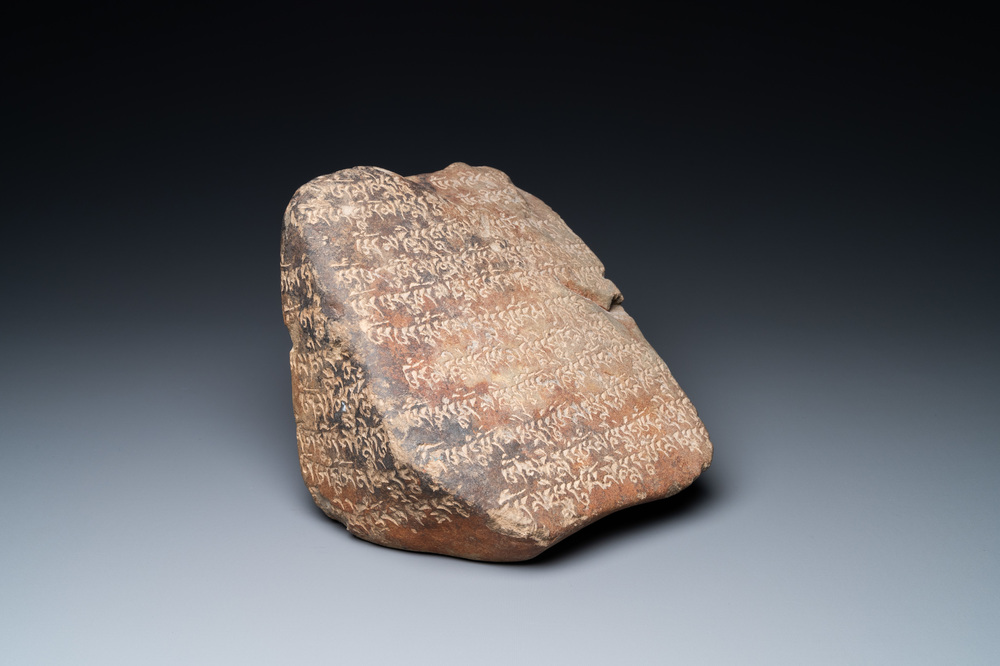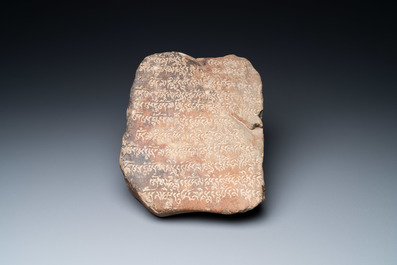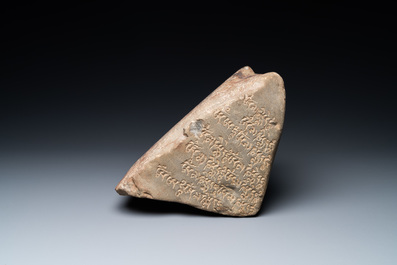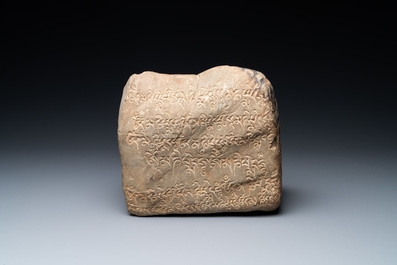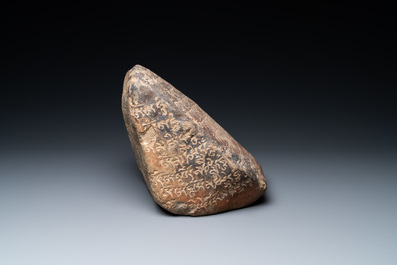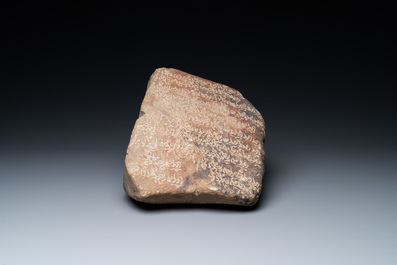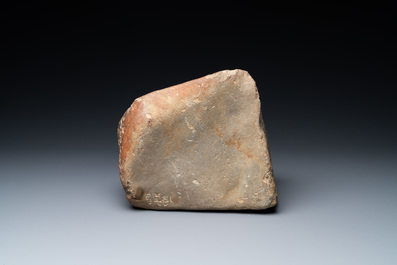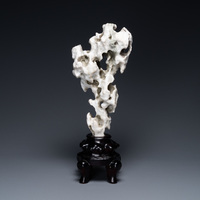We moeten verifiëren dat uw registratie niet om een geautomatiseerde ingave in ons systeem gaat. Vervolledig aub de onderstaande test...
Een gegraveerde mani steen, Tibet, 19/20e eeuw
Dim.: 20 x 19,5 x 19 cm
Mani stones are stone plates, rocks and/or pebbles, carved or inscribed with the six syllabled mantra of Avalokiteshvara (Om mani padme hum, hence the name Mani stone), as a form of prayer in Tibetan Buddhism. The term mani stone may also be used to refer to stones on which any mantra or devotional designs (such as ashtamangala) are inscribed or painted. Mani stones are intentionally placed along the roadsides and rivers or placed together to form mounds or cairns or sometimes long walls, as an offering to 'spirits of place' or genius loci. Creating and carving mani stones as devotional or intentional process art is a traditional sadhana of piety to yidam. Mani stones are a form of devotional cintamani. The preferred technique is sunk relief, where an area around each letter is carved out, leaving the letters at the original surface level, now higher than the background. The stones are often painted in symbolic colours for each syllable (om white, ma green, ni yellow, pad light blue, me red, hum dark blue), which may be renewed when they are lost by weathering.
